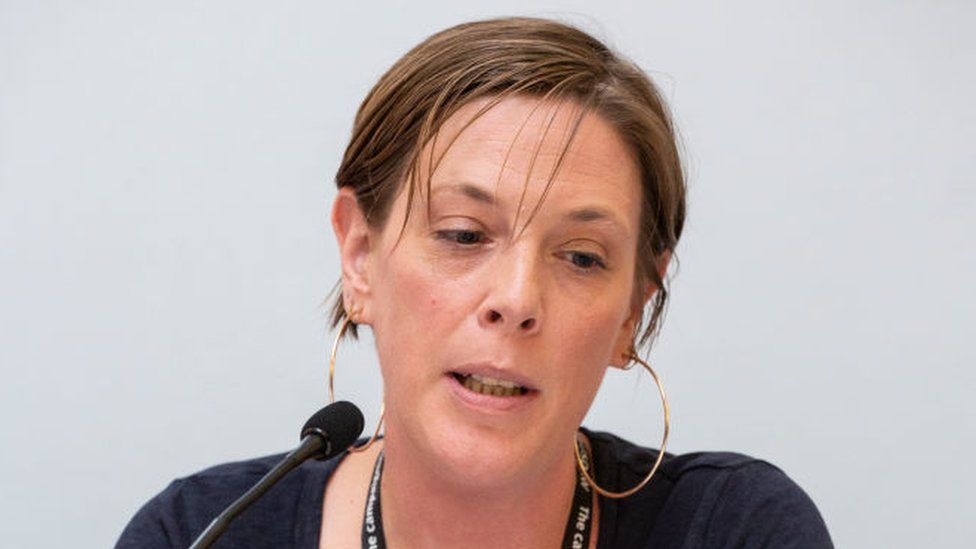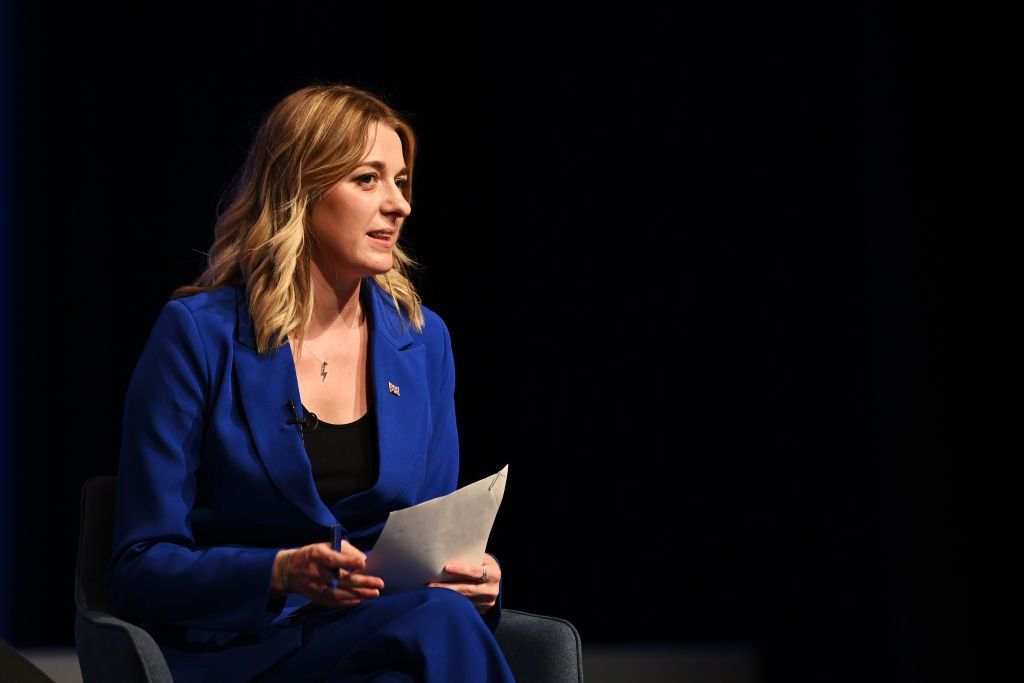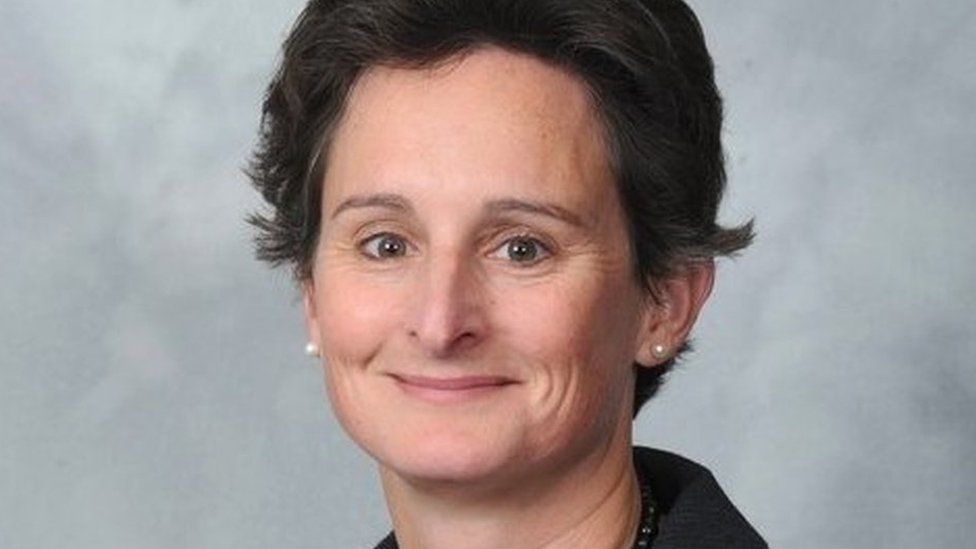MPs receive more than 130,000 offensive tweets over a six-week period.
 Image source, Nicola Tree
Image source, Nicola TreeMore than 3,000 offensive tweets are sent to UK Members of Parliament every day, a BBC investigation into the extent of online abuse has found.
Analysis of three million tweets aimed at politicians over a six-week period found more than 130,000, around one in 20, could be classed as toxic.
MP Jess Phillips said the level of abuse had created an unsustainable culture where politicians were afraid to speak their mind on important issues
Twitter was unavailable for comment.
Our investigation found:
- More than 130,000 tweets mentioning MPs were considered likely to be toxic and 20,000 severely toxic
- Female MPs were more likely to be called “thick” and “ignorant” and be subject to sexualised language while their male counterparts were more likely to be called “liars”
- All 20 of the MPs to receive the highest proportion of toxic comments were not members of the cabinet or shadow cabinet
Ms Phillips, the Labour MP for Birmingham Yardley, said politicians accepted robust criticism was part of their job, but she said a line was crossed when the language used was sexist, racist, or over-sexualised.
“Sadly, women politicians suffer huge amounts of thinly-veiled or completely direct rape and sexual violence threats,” she said.
“When it becomes not about a subject but about the way you look and about your children and family that’s when it crosses the line.”
Ms Phillips said she knew of colleagues who had even voted against their principles on a range of matters including Brexit and military intervention in Syria in order to avoid a backlash on social media.
Your device may not support this visualisation
In a wide-reaching investigation, the BBC’s Shared Data Unit used Perspective, a tool that uses artificial intelligence to spot toxic comments online.
Developed by Jigsaw, a research unit within Google, it defines a toxic comment as one which is “rude, disrespectful or unreasonable” and “likely to make someone leave a conversation”.
The team analysed all tweets mentioning MPs from March to Mid-April.
Former Prime Minister Boris Johnson received the largest number of tweets considered toxic at 19,000, around 4% of the total he received.
Other MPs to receive the highest number of offensive tweets included former culture secretary Nadine Dorries (9,000), Rishi Sunak (9,000), who was then Chancellor of the Exchequer, and Labour leader Sir Keir Starmer (8,000).
However, the MPs who received the highest proportion of toxic tweets were backbenchers at the time.
Among them was Mansfield’s Conservative MP Ben Bradley. He was mentioned in hundreds of toxic-rated tweets after arguing for the privatisation of Channel 4.
Shadow financial secretary James Murray received more than 300 toxic tweets in a single day when he spoke about transgender rights in a radio interview.

Image source, Leon Neal
And Bishop Auckland MP Dehenna Davison received offensive tweets when she wrote a critical open letter to actor Will Smith following his assault of Chris Rock during the Academy Awards.
Ms Davison is a campaigner for greater awareness around the dangers of one-punch assaults.
‘Why I quit’
Conservative MP for Meon Valley Flick Drummond quit Twitter in 2021 citing “out-of-hand” abuse.
She said she came off the platform because trolls could hide behind anonymous Twitter handles.
She said: “You don’t know who they are. It’s just vile, and I have to say my mental health is much improved since I’ve come off it.”

Ellen Judson is the head of the Centre for the Analysis of Social Media at the think tank Demos.
She said social media was becoming increasingly “democratically dangerous” in the way it was shaping debate and normalising misogyny.
“The public should be able to criticise their MPs and MPs should be accountable, that’s critical to a democracy,” she said.
“But if what we are seeing is this abuse occurring and then that affecting how MPs are voting and thinking about the decisions they are making – that’s not based on listening to the public and engaging with the public’s experience – it’s just responding to a fear of abuse from a minority of very loud trolls.”
Ms Phillips said some topics had become difficult to talk about online.
She said: “The kind of abuse you will suffer online – and certainly on Twitter – means Twitter is not the place to have a debate.
“The trans debate is exactly the sort of issue where you can see this writ large. People don’t want to touch it regardless of your viewpoint and the majority of MPs will have a nuanced viewpoint.
“There is no way of winning in that space – it’s so horrendous.
“Specifically the issue over women’s rights butting up against the trans debate. I’ve no doubt the toxic environment has stopped concerted efforts for progress on this issue.”
What can be done?
Last month, the world’s richest man, Elon Musk, completed his $44bn (£38.1bn) takeover of Twitter, announcing days later there would be no change to its moderation policies for now.
Both Demos and Mrs Phillips believe tighter regulation of social media companies is necessary.
Mrs Judson said part of the challenge in reducing toxicity was the fact those companies were seen as a place of free speech, while also operating in a commercial environment.
This, she added, meant the material likely to get “clicks or likes or shares” was also “the most polarising, divisive and toxic”.
Ms Phillips said the delayed Online Safety Bill going through parliament needed to include “genuine criminal and financial sanctions” for companies that fail to moderate online abuse.
The BBC had contacted Twitter for a response, but the firm was unable to reply.
Twitter has previously said it is committed to combatting abuse as outlined in its Hateful Conduct Policy.
On its website, it says: “We are committed to combating abuse motivated by hatred, prejudice or intolerance, particularly abuse that seeks to silence the voices of those who have been historically marginalized.
“For this reason, we prohibit behaviour that targets individuals or groups with abuse based on their perceived membership in a protected category.”
The company has also previously pointed out it has a much more open platform than other social media companies, which allows researchers to “enhance and research the public conversation”.